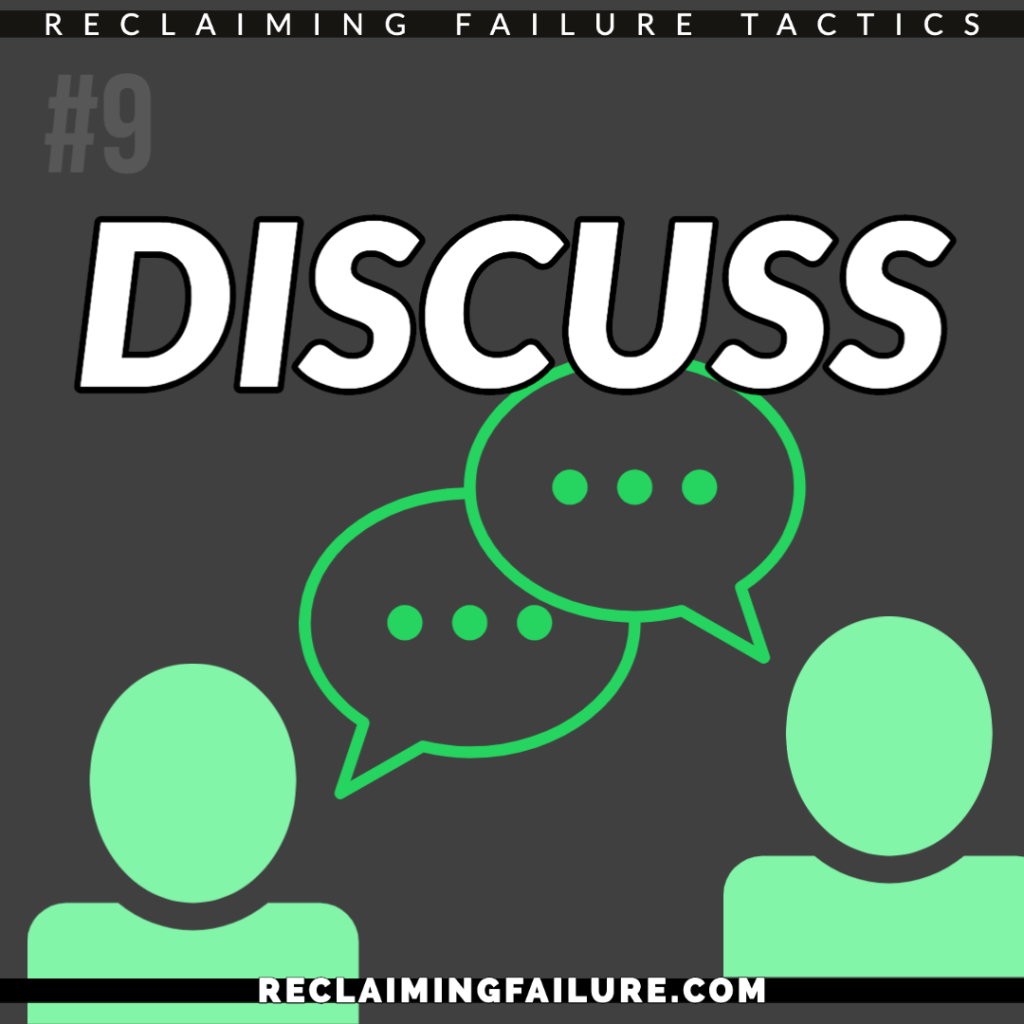
Contact Me
Most Recent Blog Posts
05/16/2024
ChatGPT and the Educational Pump Fake
05/25/2023
On Failure...
05/16/2023
An Ode to the GOAT (of Failure)
02/12/2021
Failure Judo: Take Time to Recover
07/31/2020
Failure Judo: Build Community
07/30/2020
Failure Judo: Discuss
07/29/2020
Failure Judo: Be Meta
07/28/2020
Failure Judo: Tinker
07/27/2020
Failure Judo: Practice
07/26/2020
Failure Judo: Reframe the Experience
07/25/2020
Failure Judo: Manage Loss
07/24/2020
Failure Judo: Take Incremental Steps
07/23/2020
Failure Judo: Fail on Furpose
07/22/2020
Failure Judo: Visualize Failure
07/21/2020
Failure Judo: 11 Tools to Make Failure Work for You.
07/20/2020
Perseverance Isn’t Enough.
02/05/2020
Why You Should Try New Things
01/09/2020
Piaget and Failure…
01/04/2020
The Value of Struggle
01/02/2020
The Fear of Failure
11/16/2019
Why Failure Beats Practice Alone
11/14/2019
Reclaiming Failure Tactic: Visualization
11/05/2019
Legos, the Process, and Failure
10/30/2019
Fail First, Succeed Later
10/25/2019
Failure... Like Riding a Bike
10/24/2019
Michael Jordan: Faiure
10/23/2019
Pole Vaulting - A Journey of Failure
10/18/2019
Failure Judo: Discuss
07/29/2020
Part 9 in the Failure Judo Series
If a tree fails in the forest, and nobody is around to witness it, does it learn anything?
The value of many of life’s experiences is greatly enhanced when those experiences happen with others. This is true for fun experiences. It is true for difficult experiences. And, it is true for failures.
As learning experiences go, failures are a goldmine. However, our ability to mine these experiences is crippled if we do it in isolation. Oftentimes, the feelings and experience of failing can disrupt the clarity of our thoughts, or distort our perspectives, preventing us from the sort of analysis that we need.
Here are a few things to think about, related to recruiting a partner in failure:
1. Finding someone who has your best interests, and who wants you to succeed, is nice.
2. Someone who wants you to succeed too much might not be great, because they might be as wrapped up in the experience as you are.
3. Someone who knows what to look for, or who can be taught what to look for. Think about a professional coach — if you were an athlete, you wouldn’t ask someone off the street for feedback on your technique. You’d find a coach who knows.
4. Think about this pattern: Discuss your goals and past struggles beforehand. Do the thing. Then, discuss afterward. Repeat as necessary. (Honestly, if multiple attempts are possible in a short time frame, this is ideal, because we know that shorter feedback loops are more effective in changing behavior).
5. This principle/tool works great in conjunction with other techniques on this list.
6. Sometimes, “performing” for someone can help you succeed. Sometimes it makes it harder. Be aware of the effect this has on you, and do what you can to mitigate any negative effects.
Part 9 in the Failure Judo Series